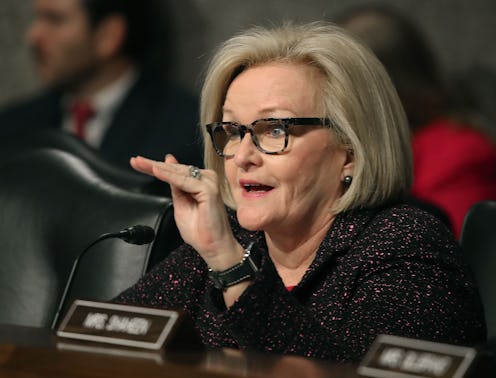News
Democrats, Get Your Act Together On Sessions

A bomb exploded in the political world Wednesday night. The Washington Post published a report based on the accounts of Justice Department officials that found that not only had Attorney General Jeff Sessions met with the Russian ambassador in the midst of an election that Russians were reportedly attempting to influence, but that he had possibly obscured such contact when under oath. During his confirmation hearing, Sessions was asked what he would do if he discovered evidence that Trump campaign members had been in contact with Russia during the election. Sessions said he was not aware of such contact and added, “I have been called a surrogate at a time or two in that campaign and I did not have communications with the Russians.”
He did, in fact, have communications with Russia, according to the Washington Post report. Sessions has admitted that, too, since the report came out, but tried to push back against the story. His spokeswoman Sarah Isgur Flores said what he said during the confirmation was accurate because the contact with the Russian ambassador was part of "meetings he took as a senator and a member of the Armed Services Committee," rather than as part of Trump's campaign.
On both sides of the aisle, many politicians weren't assuaged by this denial, and Sessions actually recused himself from investigations into the Trump presidential campaign in response to the backlash.
But meanwhile, Democrats have taken the fire under Sessions and tried blowing lighter fluid at it. Top Democrats like House Minority Leader Nancy Pelosi, Senate Majority Leader Chuck Schumer, and House Oversight Committee ranking member Elijah Cummings have escalated from just calling on Sessions to recuse himself from the investigation to resign from his position entirely.
Personally, I'm no fan of Sessions (mostly for his views, record, and actions on civil rights), but resignation is a bit of a big thing to jump to so quickly. Sessions' defense, that while he did talk to the Russian ambassador, he didn't discuss anything related to the campaign, could have some merit, and it's important we figure out what exactly he did and didn't say, and whether it was a lie, before we jump to the most intense response. Some experts have argued that, due to the ambiguity over his statements, they do not amount to full perjury.
What this moment calls for, above all, is a sobriety that goes beyond partisan attacks. Democrats need Republicans to go beyond their tepid concerns and insist on a full investigation that not only doesn't involve Sessions, but is open in a way that allows the public to fully understand what is discovered.
And to do that, Democrats need to make sure they handle the Sessions accusations with a focus only on clear facts there are enough of them to make this dangerous for Republicans but they can't fall into gaffes or distractions.
For instance, Sen. Claire McCaskill of Missouri tweeted that she'd never met with the Russian ambassador in her capacity on the Senate Armed Services Committee, as Sessions claimed he had.
This tweet was quickly disproved by a tweet the senator sent in 2013, saying she was doing just that.
McCaskill tried to clarify that it wasn't in an individual, one-on-one capacity.
There's no reason for McCaskill to be making claims like this in the midst of the firestorm if they're so quickly disproven.
In the midst of a moment when Americans have good reason to worry about the objectivity and truthful of investigations into government officials, it is supremely unhelpful for McCaskill and other Democrats to turn this moment into its most partisan form. From any perspective, the Russia investigations are important, worrying, and could derail the Trump administration's hopes for any accomplishments. Democrats should take this opportunity to sit back, watch, and get the facts right.